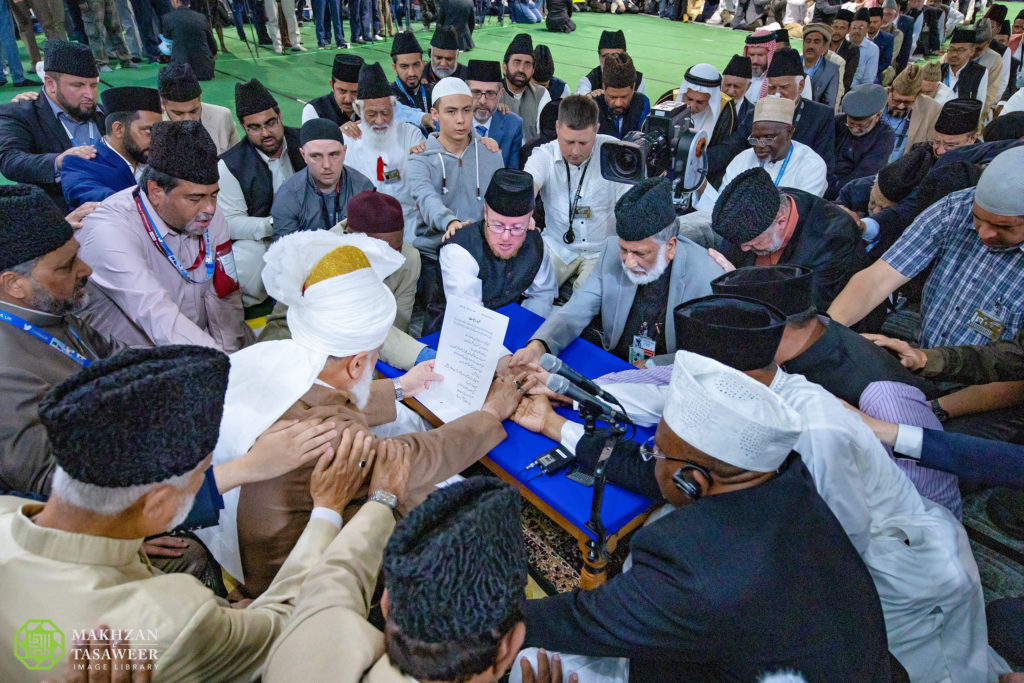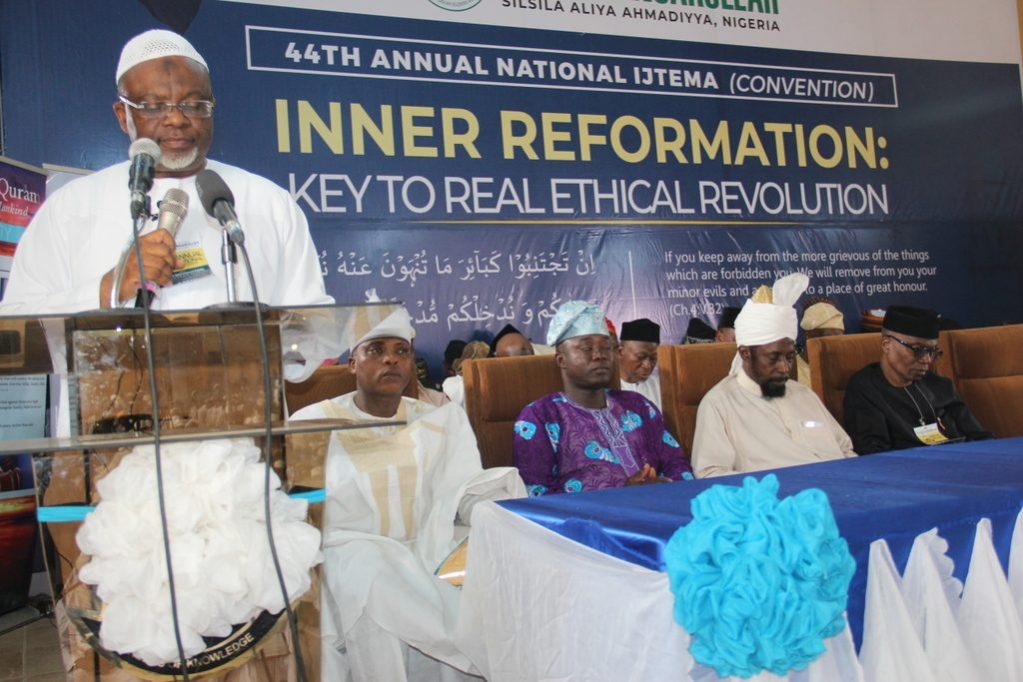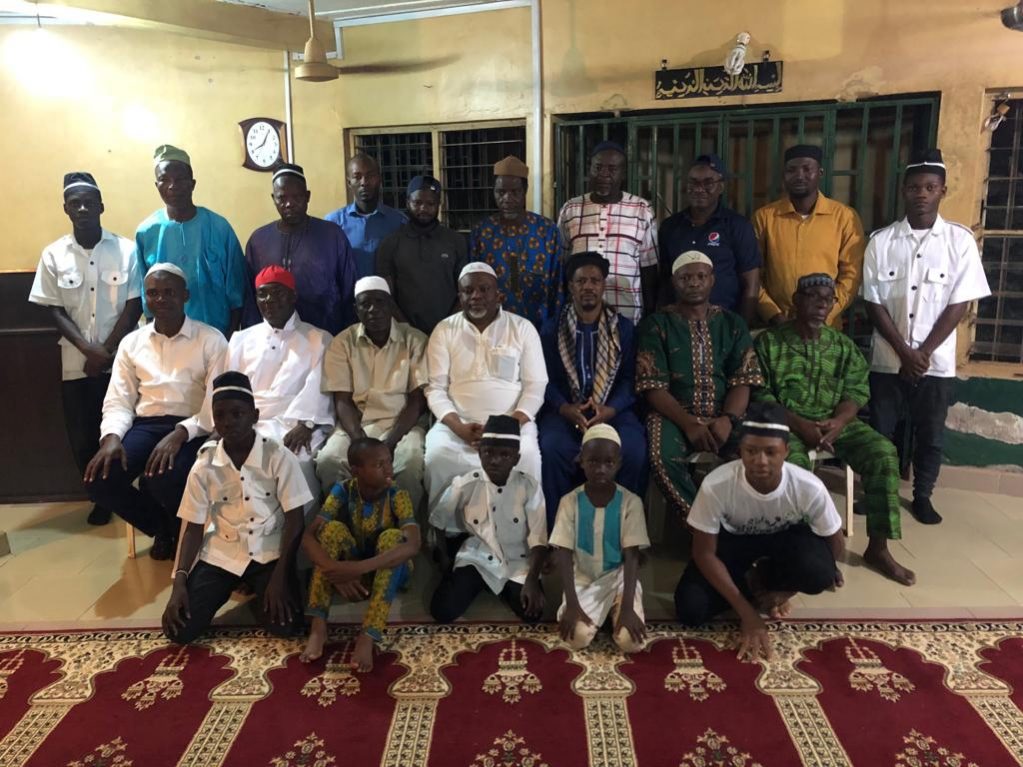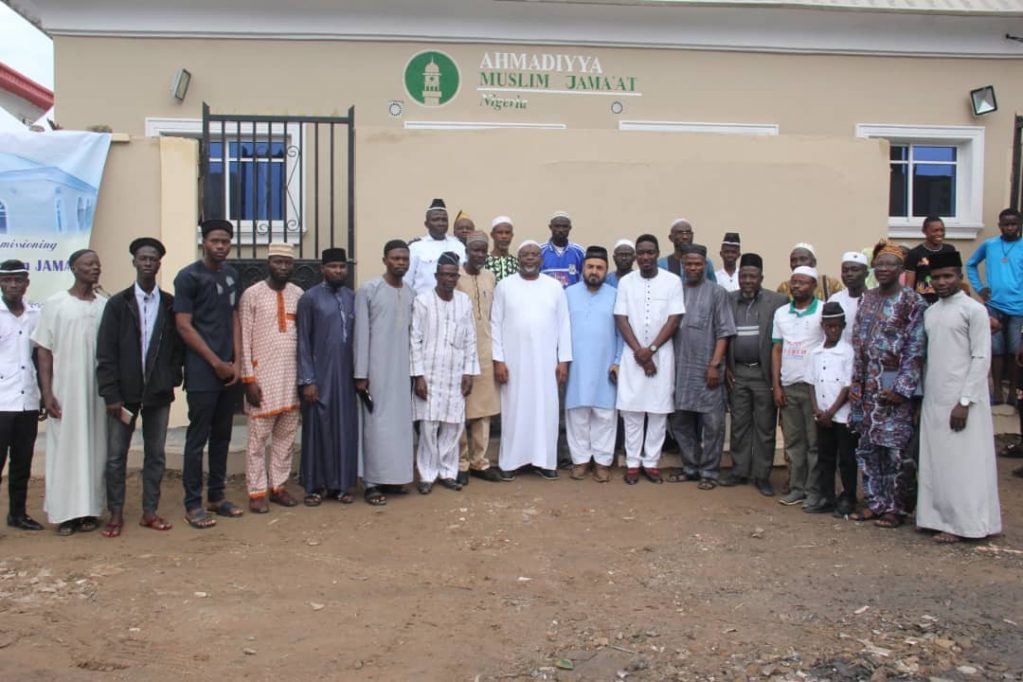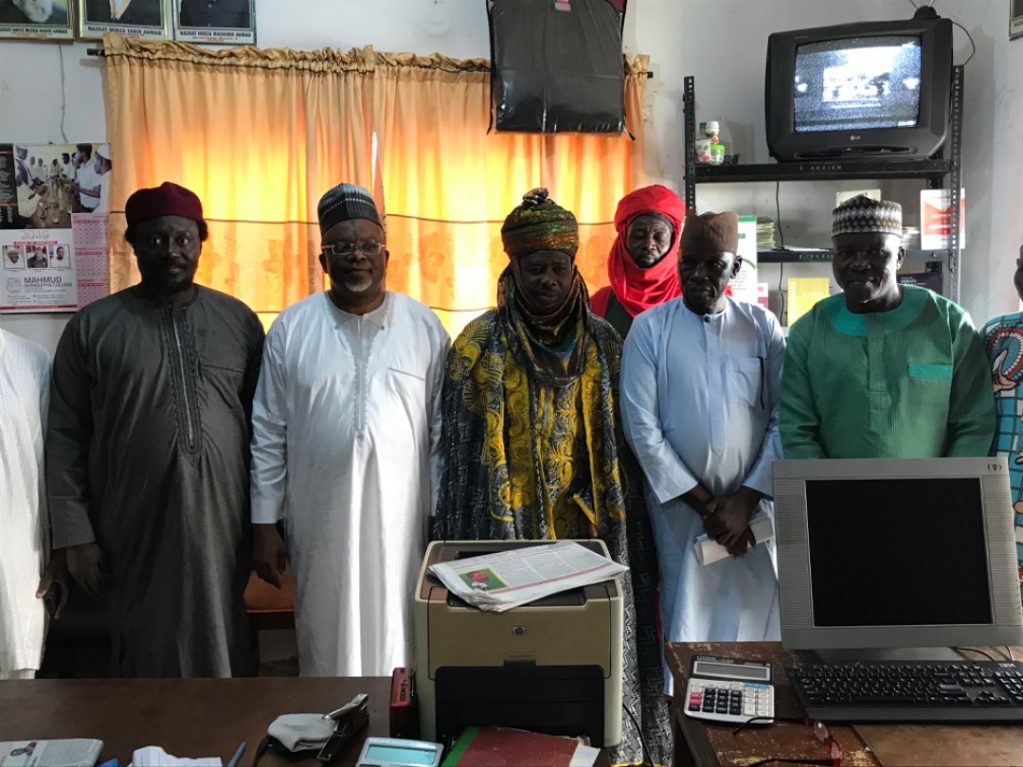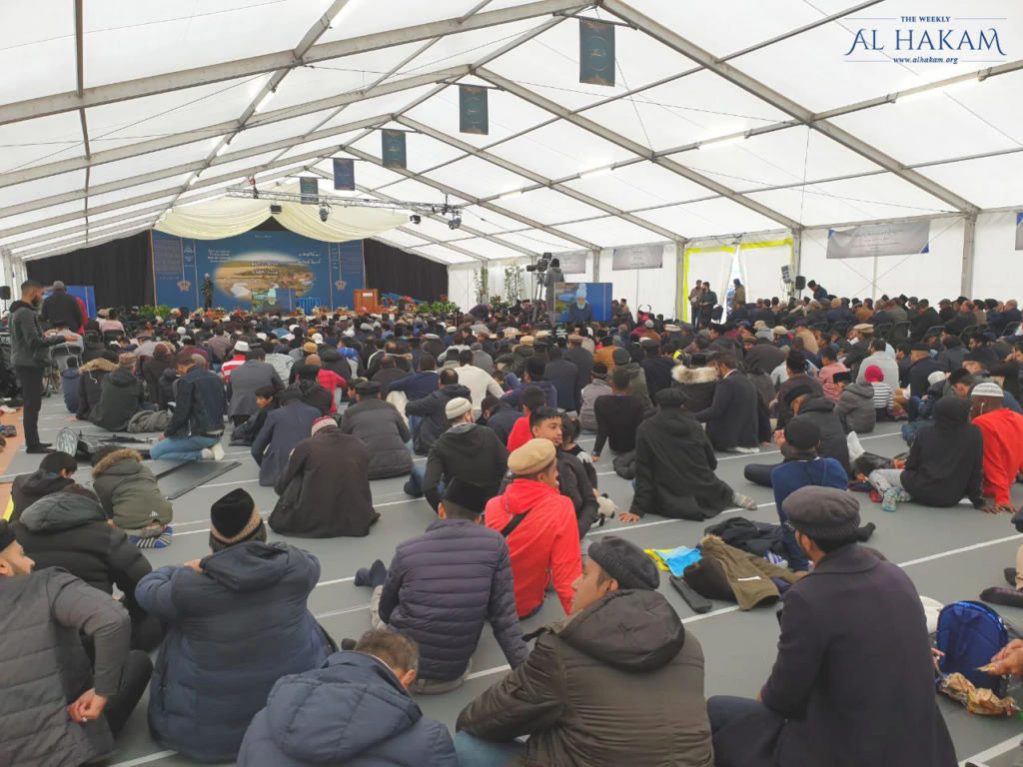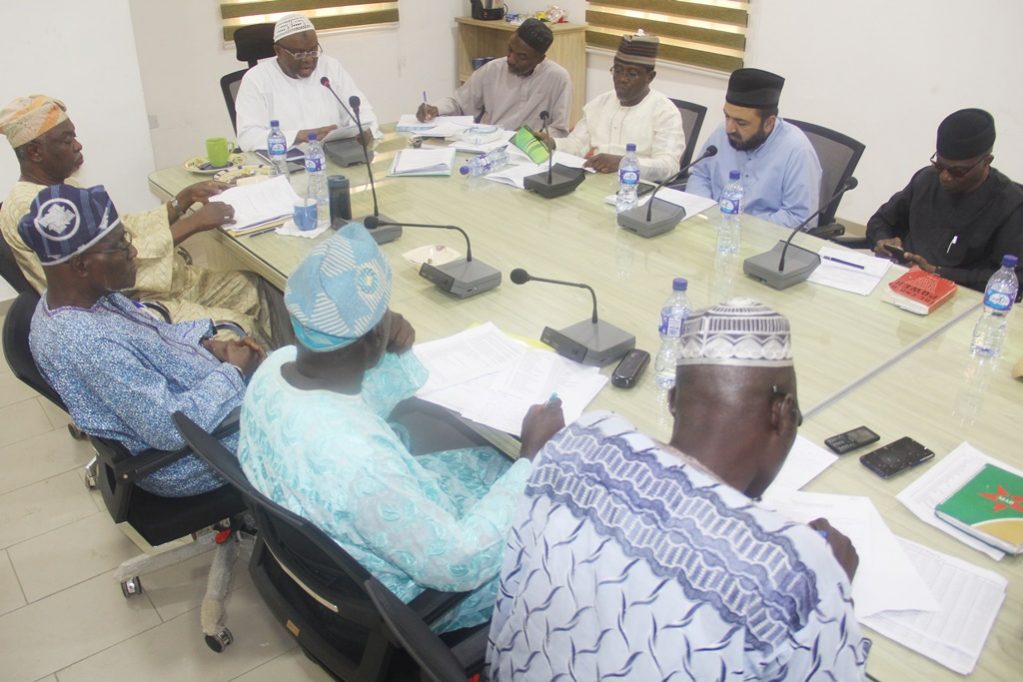Over 668,000 People Join Ahmadiyya Muslim Community
53rd Jalsa Salana UK concludes with an inspirational address by Hazrat Mirza Masroor Ahmad. The World Head of the Ahmadiyya Muslim Community, the Fifth Khalifa (Caliph), His Holiness, Hazrat Mirza Masroor Ahmad recently concluded the 53rd Annual International Convention (Jalsa Salana) of the Ahmadiyya Muslim Community with an inspirational address in the UK. More than 39,800 people from 115 countries attended the Jalsa Salana, which took place at Hadeeqatul Mahdi in Alton, Hampshire. Apart from the thousands of Ahmadi Muslims who participated, many non-Ahmadi and non-Muslim guests also attended. The entire event was broadcast live on MTA International and streamed online. A highlight of the three-day Jalsa Salana was the pledge of allegiance, known as Bai’at, that took place on Sunday afternoon, where the participants pledged allegiance to Hazrat Mirza Masroor Ahmad as the Fifth Khalifa (Caliph) of the Promised Messiah (peace be upon him). The participants formed a human chain leading to the Khalifa as they repeated the words of the pledge in unison. Prior to the ceremony, His Holiness announced that more than 668,500 people had joined the Ahmadiyya Muslim Community during the past year from all around the world. His Holiness further announced that the Ahmadiyya Muslim Community was now established in 213 countries. This year the Ahmadiyya Muslim Community was established in Armenia for the first time. During the address, His Holiness spoke of how Islam in particular, and religion more generally, was being vehemently criticised in the modern world. In light of this, His Holiness powerfully defended Islam’s teachings and highlighted Islam’s superiority to other social systems and spoke of the Holy Quran’s teachings on defending the human rights of all people. His Holiness said that it was commonly alleged that religion was out-dated and incompatible with the modern world and hence religious teachings should be changed in order to suit the needs of the new era. His Holiness said that whilst some other religions are debating whether their religious teachings need to be reformed to suit the modern era, Islamic teachings were timeless and universal and the Holy Quran is, and always will be, the most comprehensive book sufficient for all times and all places. Hazrat Mirza Masroor Ahmad said: “We firmly believe that the Holy Quran is the book of Allah the Almighty, and He has promised to safeguard it. Other religions no longer have their original teachings, however the Holy Quran’s teachings have not changed for over 1400 years and will remain so until the Last Day. The teaching of the Holy Quran is everlasting and is for people of all eras.” Hazrat Mirza Masroor Ahmad continued: “In this era, by sending the Promised Messiah (peace be upon him), Allah the Almighty has further safeguarded the teachings of the Holy Quran. The Promised Messiah (peace be upon him) expounded upon the teachings of the Holy Quran and revealed its hidden treasures. He demonstrated that the Holy Quran caters for the need of all aspects of human interactions; from social relations between individuals and societies to international relations between world nations. It expounds upon spirituality whilst at the same time it reveals great academic and scientific truths. It comprehensively lays out the rights of God and the rights of God’s creation. Therefore, there is no need to be affected by the objections of critics and we should never be under any complex about the Holy Quran.” Hazrat Mirza Masroor Ahmad further stated: “The Holy Quran caters for even the most seemingly insignificant needs of human beings. The Holy Quran and the Holy Prophet Muhammad (peace and blessings be upon him) established our rights for us and these are the rights that can guarantee peace at all levels of society.” His Holiness went on to cite the rights and obligations as laid out by the Holy Quran that its followers must fulfil, including the rights owed to parents, elders, children, neighbours, spouses and all creation of God. His Holiness illustrated the comprehensive nature of the Holy Quran by narrating a verse of the Holy Quran. Chapter 4 verse 37of the Holy Quran speaks in detail of the rights established by God Almighty. The aforementioned verse of the Holy Quran states: “And worship Allah and associate naught with Him, and show kindness to parents, and to kindred, and orphans, and the needy, and to the neighbour that is a kinsman and the neighbour that is a stranger, and the companion by your side, and the wayfarer, and those whom your right hands possess. Surely, Allah loves not the proud and the boastful.” His Holiness further mentioned that people should think well of others and not think ill of them. Thus, by doing so, they would develop love, unity and strength amongst each other. His Holiness mentioned that, sadly, it was increasingly common to fail to show affection and basic human sympathy in today’s materialistic world. If someone is left hungry, they do not care for them, or if someone has financial issues, they do not spend their own wealth to cover the shortcomings of the other. Hazrat Mirza Masroor Ahmad mentioned that whilst non-religious people make allegations against religion and Islam in particular, a recent survey showed how charity is donated mostly by religious people and Muslims are amongst those who give to charity the most. Hazrat Mirza Masroor Ahmad said: “When one works for Allah and helps his weak, less fortunate brothers, his faith is increased. The Promised Messiah (peace be upon him) said that if man does not help others, he gradually becomes like animals in his morals whereby he cares not for others. The Promised Messiah (peace be upon him) said, ‘A person’s humanity demands it of him, and he is only a human, if he is kind towards all humanity without discrimination.’ The Promised Messiah (peace be upon him) also said, ‘never, under any circumstance, constrict the circle of your kindness.’” His Holiness went on to narrate verses of the Holy Quran that outline how Islam makes it incumbent upon its followers to fulfil the rights of all sections of society. On the rights owed to one’s parents,

